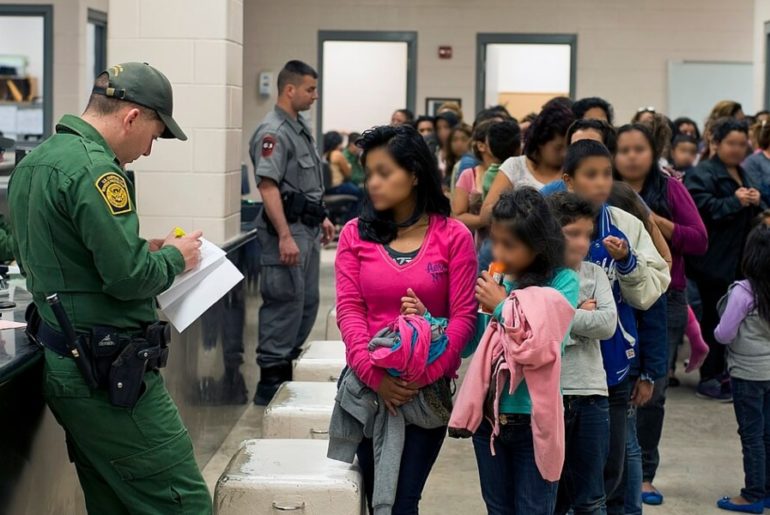Continuous adjustments in U.S. immigration policies have achieved a climate of instability, misinformation, and fear among immigrants, profoundly impacting the most vulnerable such as children and adolescents. Findings from the Immigrant Youth Project were presented on October 25 at a symposium east of Tampa, Florida. Data was presented from the project that looked at well-being of immigrants between 18 and 30-years-old, during the time after the Trump administration rescinded the Deferred Action for Childhood Arrivals policy, or DACA.
Elizabeth Aranda, a sociology professor at USF who worked on this project, talked about the demoralizing outcomes of the recent policies and anti-immigrant sentiment. As she told WUSF Public Media, “Undocumented immigrants have reacted and coped with the elimination of DACA in a different ways…We did find some cases where people talked about thinking about suicide.”
Separate from the project, psychologists have been concerned about immigration-derived traumas of immigrant children. The families of these children decide to migrate to the US for different reasons. They may be due to the lack of economic opportunities, the search for better educational opportunities for their children, away from violence (family, gang and / or drug trafficking), violence and/or political persecution, among other reasons. But in many cases, the American dream can become a nightmare. The publication “Vulnerable but not broken” (Immigration Psychology Working Group, 2018) says in order to address the needs of Central American minors in the U.S. “it is important to appreciate the context of their home countries.” Their problems could be Familial (abuse/violence, neglect, separation), Historical (civil war, chronic poverty), and/or Societal (gang violence, social, exclusion, sexual assault, limited education/employment opportunities). Unaccompanied children are among the most vulnerable travelers on the migration routes north from Central America. Children are exposed to health risks, hardships, frequent delays, victimization, loss of property, unsafe lodgings, exposure to the elements, and victimization by criminals, traffickers, smugglers, and corrupt government officials who take advantage of their predicament. Also, they say that sustained or cumulative exposure to traumatic stressors can have a profound impact on children’s neurobiological development, physical health, and psychology.
Once in the U.S., the American Psychological Association points out that the undocumented immigrant children and youth are frequently subject to particularly traumatic experiences, including: racial profiling, ongoing discrimination, exposure to gangs, immigration raids, having family members arbitrarily stopped to ascertain their documentation status, being forcibly taken or separated from their families, returning home to find their families have been taken away, placement in detention camps or child welfare and deportation.
What are the behaviors that children could present?
In September 2019, a report by the HHS Office of the Inspector General addressed the impact of family separation on the children that were separated from their families, saying, “facilities reported that addressing the unique mental health needs of separated children was particularly challenging.” According to program directors and mental health clinicians, separated children exhibited more fear, feelings of abandonment, and post-traumatic stress than children who were not separated.
The American Psychiatric Association stated that “Children depend on their parents for comfort, safety, and support. Any forced separation is highly stressful for children and can cause lifelong trauma, as well as an increased risk of other mental illnesses, such as depression, anxiety, substance use, and posttraumatic stress disorder (PTSD).”
The American Academy of Pediatrics, in the “Providing Care for Children in Immigrant Families” reports that “on arrival, many refugee and unaccompanied children have high levels of anxiety, depression, and PTSD. Compared with US-origin youth, refugee youth have higher rates of community violence exposure, dissociative symptoms, traumatic grief, somatization, and phobic disorder. Unaccompanied minors have even higher levels of PTSD compared with accompanied immigrants, which may be further heightened if they are seeking asylum.
According to the report of The Associated Press, The Department of Homeland Security said that 1,995 children were taken from their parents between April 19 and May 31 of 2018, as a result of Zero Tolerance enforcement. In 2019, the U.S. Customs and Border Protection reports (From October 2018 to August 2019) that 72,873 unaccompanied children were apprehended on the border of them 4,235 children were deemed inadmissible. Considering these numbers and the life-long impact of trauma, immigration and children’s advocates have been calling for the reversal of the policies that have been so harmful to the social and emotional well-being of immigrant children.

